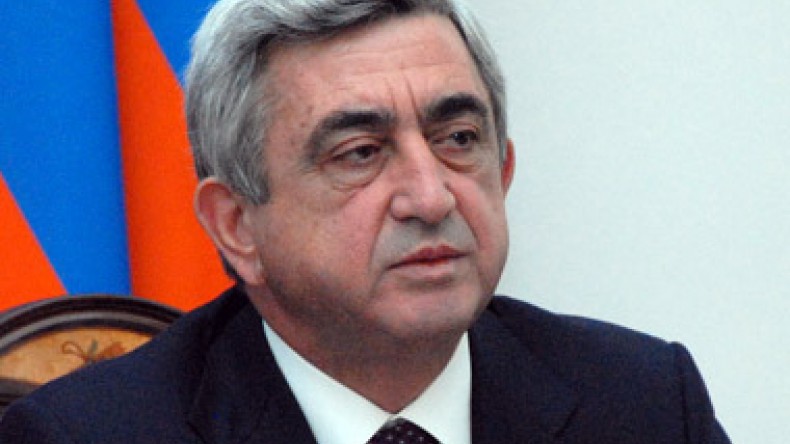
Serzh Sargsyan: Mass killings and genocides carried out under cover of World War I as such went unpunished
President Serzh Sargsyan addressed today the “Armenian Genocide: Challenges on the eve of the Centenary” conference organized by the State Commission for Coordination of the Events dedicated to the 100th anniversary of the Armenian Genocide.
“Distinguished Participants of the Conference,
On the eve of the 100th anniversary of the Armenian Genocide it has become an imperative to review our further steps, in particular, to develop the itinerary of the events in different corners of the world, and to address the slipups. It will allow us to most comprehensively and deeply approach the issue of organizing varied events dedicated to the 100th anniversary of the Armenian Genocide and highlight their international sounding.
Next year, the entire humankind will pay tribute to the memory of the victims of the World War I and will reflect on the consequences and lessons of the large-scale war which befell the human race. Unfortunately, the mass killings and genocides carried out under the cover of that war as such went unpunished and here we should look for the roots and genesis of the new and more excruciating World War II and Holocaust.
The Armenian nation, which survived the Genocide despite the wishes of the perpetrators and their followers, was able to get up, establish its own statehood, create strong and dependable national structures in spyurk. The 100th anniversary of the Great Eghern is not just an anniversary: events and memorial services will allow us to demonstrate to the entire world our unity and resolve not to recoil on the issue of elimination of the consequences of the Genocide but also to pass on to next
generations new methods of struggle and survival.
Dear Friends,
The history of the Armenian Genocide and its lessons pertain not only to the Armenian history and memory. They pertains equally to the history and memory of the Turkish state and Turkish people and from that point of view we are encouraged with the fact that the decades-long silence and posture of denial are now giving in and the most conscious segment of the Turkish society has been able to reexamine the imposed official attitude and stance toward the tragic events of the past. Moreover, it has been able to approach critically the official position and rise against new manifestations of denial.
We are confident that future generations of Turks and Armenians will by all means find a new formula of co-existence and to get there, certainly, it will useful to cooperate in the elimination of the consequences of the past crimes since it shall become an important guarantee of restorative justice.
Proposals and observations made during this Conference will undoubtedly be taken into consideration during the works of the State Commission for Coordination of the Events dedicated to the 100th anniversary of the Armenian Genocide, and we urge you to conduct utmost sincere and free discussions with regard to specifying and refining our future moves and strategy.
I wish all participants of the Conference productive works.”
Newsfeed
Videos






























